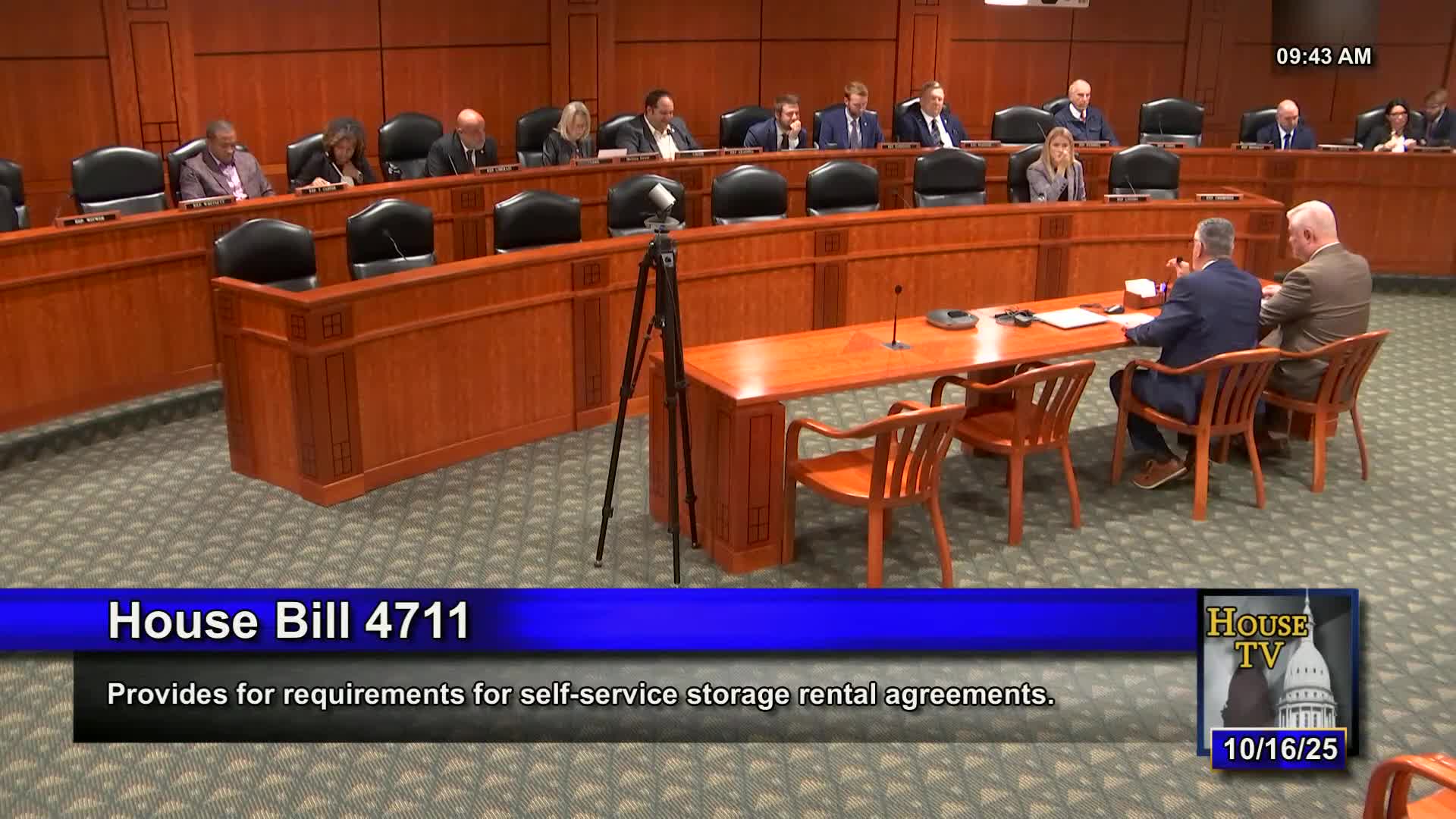Committee hears bill to allow electronic rental agreements and clarify termination for self-storage operators
Get AI-powered insights, summaries, and transcripts
Subscribe
Summary
House Bill 47 11 would permit electronic delivery and acceptance of self-storage rental agreements, allow automatic renewals when tenants continue using units after notice, and clarify termination/disposition processes for nonmonetary defaults; proponents said changes modernize the statute and provide certainty for owners and operators.
The committee heard testimony on House Bill 47 11, a proposal to modernize the Michigan Self Storage Facility Act by explicitly allowing electronic delivery and acceptance of rental agreements, permitting automatic renewals in certain circumstances, and clarifying disposition procedures after termination or nonrenewal.
Representative Hoadley introduced the bill and described electronic delivery and acceptance as updates to reflect current business practices. Darren Ing, executive director of the Self Storage Association, explained the bill would confirm that rental agreements may be delivered and accepted electronically, provide a mechanism for unsigned agreements to take effect if tenants continue using the unit after a notification period, and streamline termination and disposition procedures for nonmonetary defaults (for example, illicit activity) without upsetting the statute’s existing nonpayment procedures.
Witnesses said the bill is not intended to change protections for tenants who default on rent; under current Michigan law an owner/operator may recover up to four months’ rent through lien-sale procedures and any proceeds beyond that must be returned to the unit owner. The bill’s proponents said the changes are intended to give owners and operators certainty when converting contracts after a facility sale or when updating agreements to comply with new law.
Committee members asked about notice periods and enforcement with local authorities in cases involving illicit activity; proponents said existing local enforcement and court processes remain available and that the bill clarifies operator remedies outside of nonpayment cases.
Ending: The committee took testimony; no committee vote was recorded on the bill during this session.
